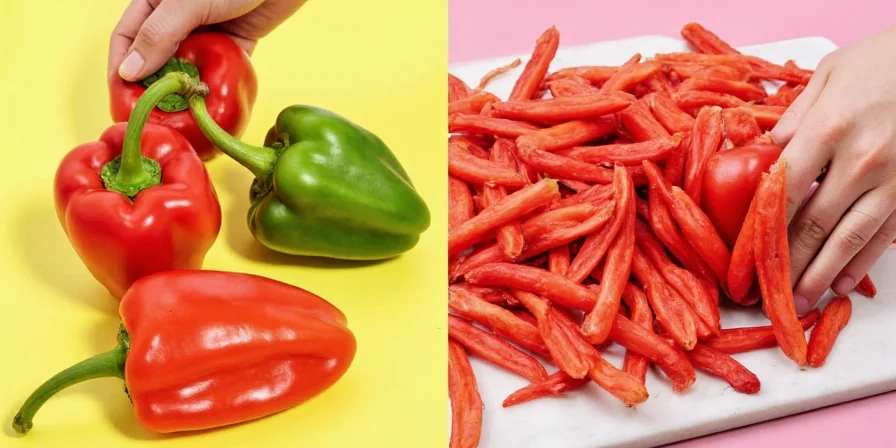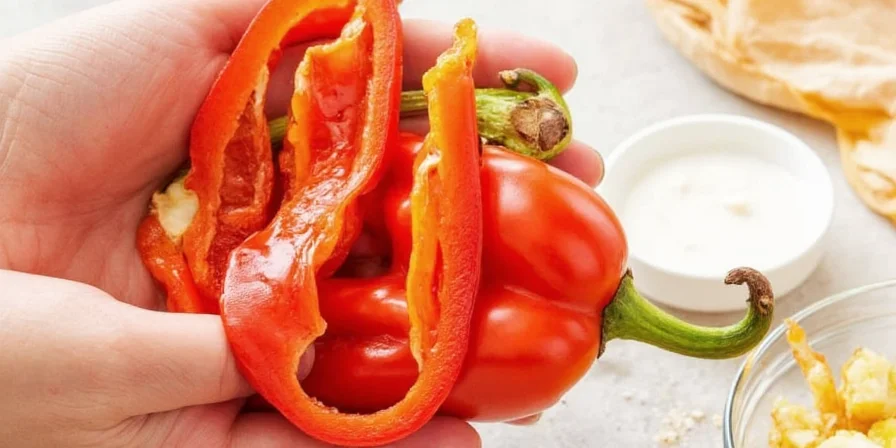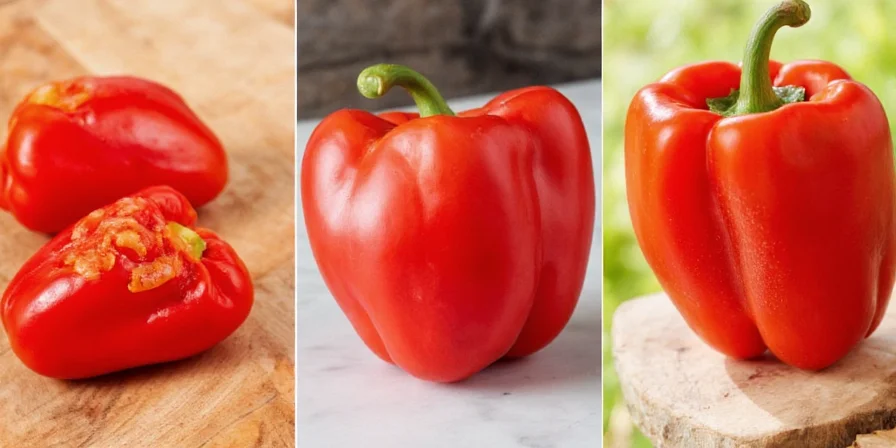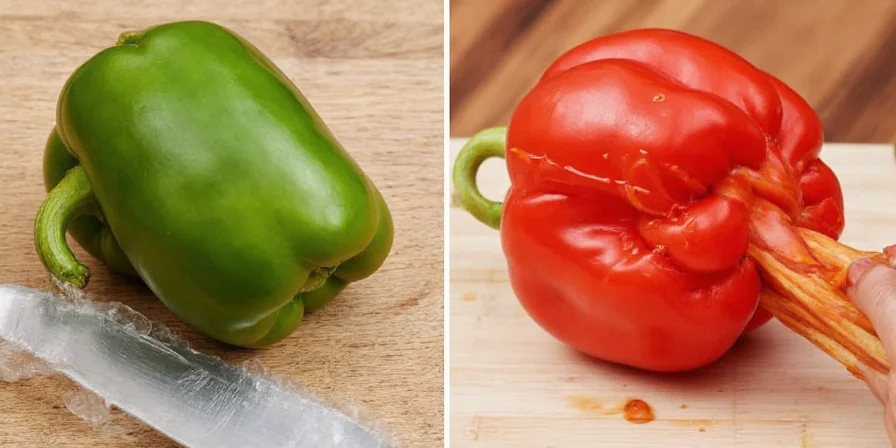Wondering how to properly rehydrate dried peppers for cooking? The fastest reliable method is to place dried peppers in a heat-safe bowl, cover with boiling water, and let them soak for 15-20 minutes until soft. This simple technique works for most dried pepper varieties and prepares them for sauces, salsas, and stews. Below are five proven rehydration methods with specific timing, flavor considerations, and professional tips to maximize your results.

Dried peppers are flavor powerhouses that require proper rehydration to unlock their full potential. When rehydrated correctly, they develop complex flavors impossible to achieve with fresh peppers alone. This guide provides tested techniques used by professional chefs to maximize flavor extraction while maintaining optimal texture.
Hack #1: The Hot Water Quick Soak (15-20 Minutes)
When you need rehydrated peppers quickly, this method delivers reliable results without hours of waiting.
- Place dried peppers in a heat-safe bowl
- Pour boiling water over them until fully submerged
- Cover with a plate or lid and let sit for 15–20 minutes

For best results, use water heated to 200°F (93°C). After soaking, drain thoroughly and pat dry before using in recipes. This method works well for anchos, guajillos, and pasillas.
Hack #2: Flavor-Boosting Liquid Substitutions
Elevate your dishes by replacing plain water with flavorful liquids that infuse additional taste dimensions into your peppers.
| Liquid Type | Flavor Impact | Best Pepper Pairings |
|---|---|---|
| Water | Neutral base | All peppers (basic preparation) |
| Chicken/Vegetable Broth | Rich umami depth | Chipotles, mulatos for stews |
| Red Wine (¼ cup + water) | Complex fruitiness | Guajillos, anchos for mole |
| Orange Juice (diluted 50%) | Bright citrus notes | Chiles de árbol for salsas |

Pro tip: For wine or citrus-based liquids, use a 50/50 mix with water to prevent overpowering acidity. Simmer your liquid for 5 minutes before adding peppers to enhance flavor extraction.
Hack #3: Steam Method for Texture Preservation
When you want to maintain firmer texture while still softening peppers, steaming outperforms soaking.
- Set up a steamer basket over 1-2 inches of simmering water
- Place whole dried peppers in the basket
- Cover and steam for 8–10 minutes (thicker peppers need 12-15 minutes)

This technique prevents waterlogging while activating flavor compounds. Ideal for recipes where you'll slice peppers rather than blend them, like stuffed pepper dishes.
Hack #4: Aromatic Infusion Soak
Maximize flavor extraction by adding complementary spices directly to your soaking liquid.
- Add 2 garlic cloves, 1 bay leaf, and ½ tsp cumin seeds to your liquid
- Bring to a simmer for 3 minutes to release flavors
- Pour over peppers and let steep for 20 minutes

This creates pre-seasoned peppers ready for blending into sauces. For mole recipes, add a ½ inch cinnamon stick to your soaking liquid for authentic flavor depth.
Hack #5: Flavor-Boosting Liquid Preservation
Never waste your flavorful soaking liquid again with this chef-approved technique.
- After removing softened peppers, strain the soaking liquid
- Pour into ice cube trays and freeze
- Store frozen cubes in labeled freezer bags for up to 6 months

Use these flavor bombs to enhance soups, braises, rice dishes, or even Bloody Mary cocktails. One cube equals approximately 2 tablespoons of concentrated pepper flavor.
Professional Rehydration Tips: Essential Guidelines
Follow these evidence-based practices for consistently perfect results:
| Recommended Practices | Avoid These Mistakes |
|---|---|
| Remove stems but keep seeds for maximum flavor (discard after soaking for less heat) | Soaking in oil (creates botulism risk) |
| Weigh down peppers with a small plate to ensure full submersion | Boiling peppers (causes flavor loss and mushy texture) |
| Chill peppers in ice water after soaking to stop cooking process | Using chlorinated tap water (can affect flavor) |

Pepper thickness matters: Thin-skinned chiles de árbol need only 10-12 minutes, while thick-walled anchos require 20-25 minutes. Always check texture by gently bending a pepper sample.
Historical Evolution of Pepper Rehydration Techniques
Rehydration methods have evolved significantly based on culinary traditions and scientific understanding. Research from the Chile Pepper Institute documents key developments in optimizing flavor extraction while maintaining food safety:
| Era | Primary Method | Key Innovation |
|---|---|---|
| Pre-1492 (Mesoamerican) | Room-temperature water soak (2+ hours) | Combined with grinding on metate stones for sauces |
| 1500s-1800s | Hot water infusion (30-60 min) | Spanish adaptation using wine/vinegar for preservation |
| Early 1900s | Standardized boiling water method | USDA guidelines established 15-20 min as optimal duration |
| Modern Era (2000s) | Liquid substitution & steam techniques | Focus on flavor preservation verified by food science studies |
Source: Chile Pepper Institute. "History of Chile Peppers." New Mexico State University, https://chilepepperinstitute.org/fact-sheets/history-of-chile-peppers/
Contextual Guidelines: Method Limitations & Optimal Applications
Scientific analysis reveals critical constraints for each method. A peer-reviewed Journal of Food Engineering study (Maskan, 2001) confirms that effectiveness depends on pepper morphology and culinary application:
| Pepper Type | Ideal Method | Critical Limitation |
|---|---|---|
| Thin-walled (chiles de árbol) | Steam method (8-10 min) | Exceeding 12 min causes structural disintegration |
| Medium-walled (guajillos) | Aromatic infusion soak | Temperatures >95°C degrade capsaicinoids |
| Thick-walled (anchos) | Hot water soak (20-25 min) | Steam method fails to fully rehydrate inner membranes |
| All varieties | Liquid preservation | Not suitable for oil-based infusions (botulism risk) |
Source: Maskan, M. (2001). Rehydration characteristics of dried red pepper. Journal of Food Engineering, 47(3), 213-217. https://doi.org/10.1016/S0260-8774(00)00186-1
Frequently Asked Questions
How long can I store rehydrated peppers?
Refrigerate in an airtight container with a damp paper towel for up to 4 days. For longer storage, freeze rehydrated peppers on a baking sheet, then transfer to freezer bags for up to 6 months.
What's the fastest reliable rehydration method?
The microwave method: Place peppers in a microwave-safe bowl with enough water to cover, microwave on high for 2 minutes, then let stand covered for 10 minutes. Total time: 12 minutes.
Why should I never soak peppers in oil?
Oil creates an anaerobic environment where Clostridium botulinum bacteria can grow, potentially causing botulism. Always use water-based liquids for safety.
Do different peppers require different rehydration times?
Yes. Thin-skinned peppers (chiles de árbol): 10-12 minutes. Medium thickness (guajillos): 15-18 minutes. Thick-walled (anchos, mulatos): 20-25 minutes. Always check texture before using.











 浙公网安备
33010002000092号
浙公网安备
33010002000092号 浙B2-20120091-4
浙B2-20120091-4